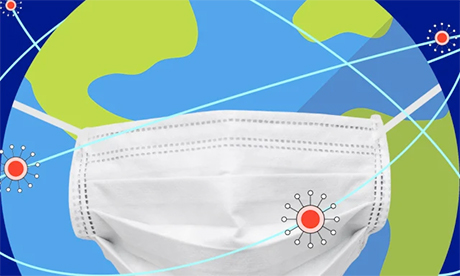The great English poet John Milton was struck blind at the age of 44 in 1652, years before he would publish his epic poem, “Paradise Lost.”
While grappling with his sudden loss of sight, he penned the last line of a sonnet that seems most relevant to a world in quarantine: “They also serve who only stand and wait” (“On His Blindness,” Sonnet 19).
In crisis periods like ours today, there is a natural urge to go out and do something, anything, to help. Instead, we are asked to keep still and stay home. It is time to remind ourselves that we can still serve others as we stand and wait.
Confronted by a dangerous and stealthy virus that can be transmitted unknowingly among us, what we are tasked with today is to build community defences, to prevent the spread of the virus by creating physical distance between one another and avoiding the natural contact that we have been accustomed to all our lives. We somehow feel blind-sided.
But rather than curse the enforced helplessness we seem to have been subjected to, perhaps it is important to envision what a chastened and contrite world can become, which in the end, can be a better reflection of who we truly are.
Move toward a more mindful nation
As we retreat to our homes, contemplate our disrupted lives and behold cities and towns shrouded in silence, we can become more mindful, more aware of ourselves, our families and loved ones.
We can reflect on the way we have lived and the way we have dealt with others and with nature, the environment that even now seems to breathe better, bursting with blue skies if we care to look out our windows or if we are lucky enough to have access to open spaces.
Living more mindful lives in a world different from the past seems to be a worthwhile outcome of the crisis that now engulfs us.
Encourage a more caring people
As we find a little more time in our hands, many of us have opportunities to reach out to others, not only our close friends, family and colleagues but those people we have been meaning to call for weeks, maybe years, and never got around to.
We are able to renew interrupted conversations and recall moments when we may have cared more for each other. A more caring people in a less frenzied world seems to be another possible outcome of this unprecedented global lockdown. Continue reading
Additional readingNews category: Analysis and Comment.








